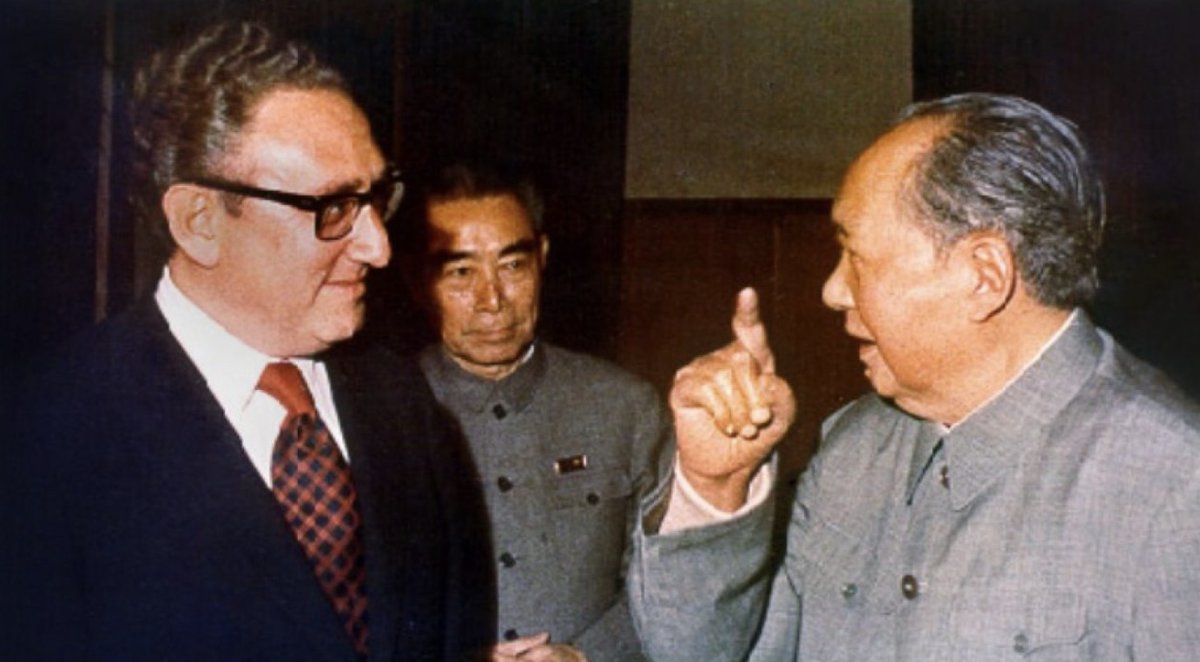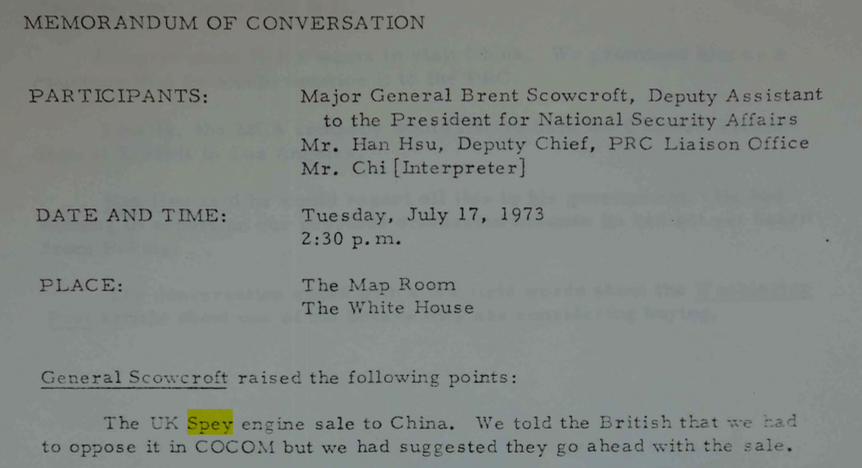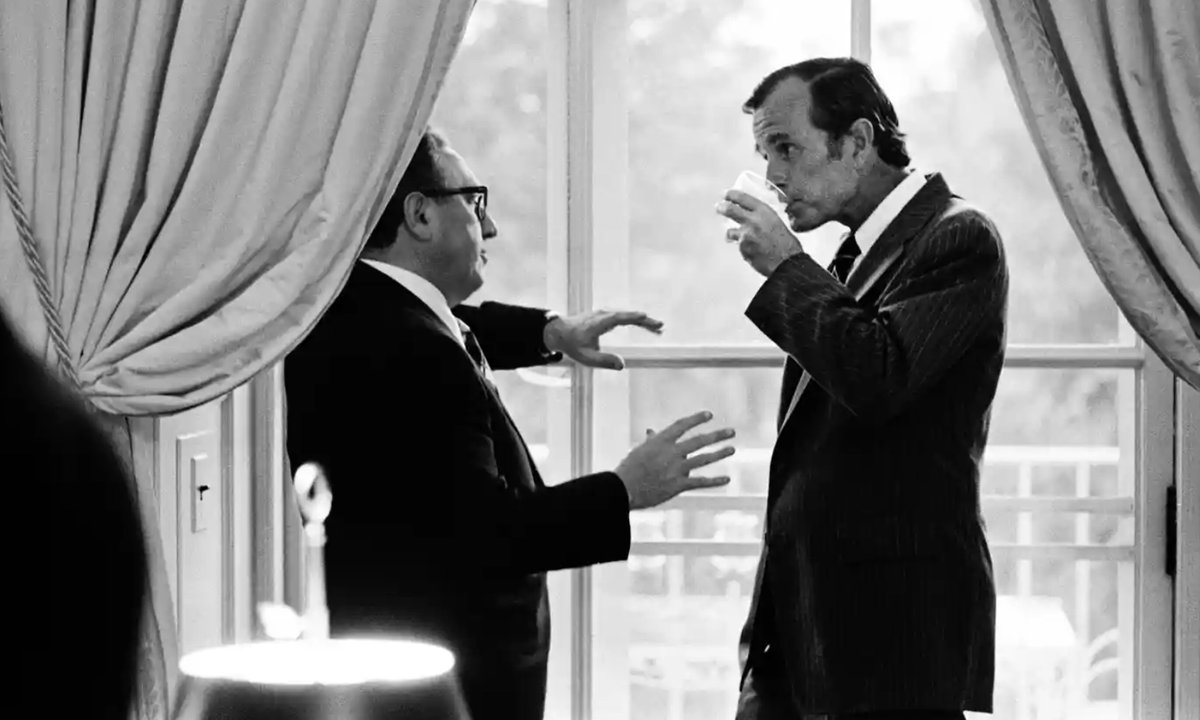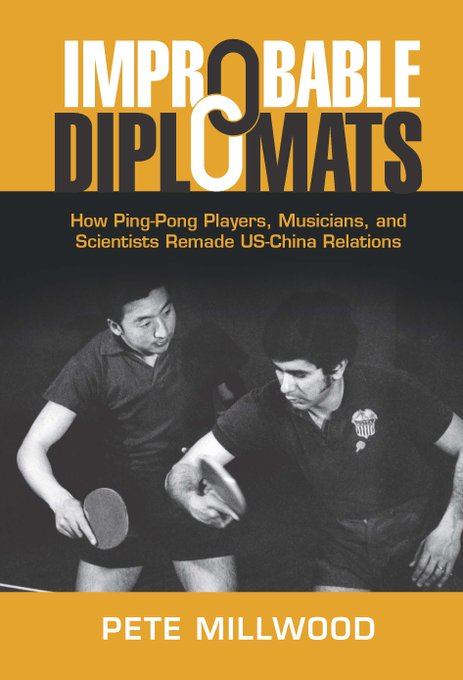Kissinger is dead. He set US China policy for the late Cold War and beyond. Only in the last 5 years have we seen the full consequences — and costs — of his influence.
A thread 🧵
A thread 🧵

We should recognise what Nixon and Kissinger (in that order) achieved.
Ignoring China for two decades hadn't worked. Rapprochement helped win the Cold War and was the foundation for the rebuilding of the most important bilateral relationship in the world today.
Ignoring China for two decades hadn't worked. Rapprochement helped win the Cold War and was the foundation for the rebuilding of the most important bilateral relationship in the world today.
And we shouldn't fault Kissinger for what he didn't, couldn't know in 1971 — that the Cold War would end, and a similar competition with China would emerge half a century after rapprochement began.
But Kissinger and others in power in the 1970s did, in fact, see the US–China competition coming.
Documents from the 1970s frequently recognise that China — a Communist country ruled by a near-omnipotent autocrat – was always likely to emerge as a powerful competitor to the US.
Documents from the 1970s frequently recognise that China — a Communist country ruled by a near-omnipotent autocrat – was always likely to emerge as a powerful competitor to the US.

Meanwhile, China's leaders — Mao and Deng Xiaoping — seemed to find it easier to collaborate with the US against the primary, Soviet enemy while remaining mindful of the long-term threat posed by an (admittedly much more powerful) United States.
Despite voicing predictions about a powerful future China, Kissinger did more than anyone else in government in the 1970s to approve a remarkably generous technology and weapons transfer program to China.
While in office, Kissinger personally found or created workarounds of laws governing tech transfers to Communist states to sell powerful computers to China that were not sold to the Soviets (even during detente). He told Deng that he was doing so — and asked nothing in return.




And he encouraged allies to sell military hardware to China, such as state-of-the-art Rolls Royce jet engines. Versions of these engines were in the JH-7 fighter that China was still flying in recent decades. Kissinger knew US rules would prohibit the US making such sales. 

1970s-era computers and engines did not make China the competitor it is today. And the PRC was far, far behind the US & the Soviets in tech & weapons. But Kissinger set a policy that was explicitly continued after he left office in 1977, & a tone that lingered until 2016.
He got little in return, beyond the long-term strengthening of China against a shared Soviet foe. Indeed, Kissinger often gave way easily in negotiations in Beijing: in 1971, he (with Nixon's blessing) unilaterally met an array of PRC positions on Taiwan.
Kissinger's importance went beyond his 8 years in office. His successors inherited his emphasis on China's strategic importance — even after the Cold War.
Kissinger deputies like Scowcroft & Bush Snr continued his China policy after Soviet collapse & the Tiananmen killings.
Kissinger deputies like Scowcroft & Bush Snr continued his China policy after Soviet collapse & the Tiananmen killings.

Kissinger will be sorely missed in China. Beijing celebrated the memory of the Kissinger era and has relied on his post-government role as China's favourite backchannel to the White House. 

Kissinger embraced this role as his USP, & because it made Kissinger Associates rich and influential.
But it was also probably helpful to US–China relations: it has been useful for Washington to know how to get a message to Beijing, and vice versa. We might not always like it, but the US and China need to be able to talk, even — especially — when relations are fraught.
Ironically, Kissinger had been very dismissive of such channels while in office.
His 1971 secret trip to China is legendary, but in fact Beijing was sending messages through several Americans in 1971 & before.
While in office, Kissinger tried to control "track two" contact with China for fear that others might sing a different tune.
wilsoncenter.org/blog-post/no-n…
While in office, Kissinger tried to control "track two" contact with China for fear that others might sing a different tune.
wilsoncenter.org/blog-post/no-n…
That was probably another mistake. A more multifaceted US–China relationship developed anyway, but his China policy could have been more successful if, like his successors, he'd recognised the productive overlap between "track two" and government diplomacy.
I've argued that's one reason Jimmy Carter successfully achieved the normalisation and recognition deal (that protected Taiwan) that eluded and frustrated Kissinger. 

Kissinger outlived the Kissinger era of US China policy by a few years. Trump & Biden have not "engaged" by default, & both have sought to undo the consequences of Kissinger's tech transfer policies.
Let us hope that Kissinger's choices do not come to seem more misguided as our hindsight increases.
END 🧵
END 🧵
• • •
Missing some Tweet in this thread? You can try to
force a refresh

 Read on Twitter
Read on Twitter



